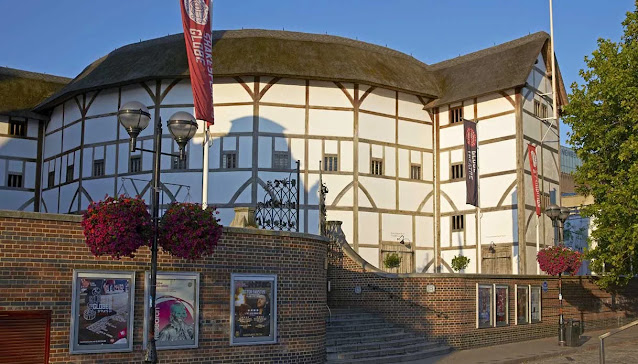Showing posts with label The Globe Theatre. Show all posts
Showing posts with label The Globe Theatre. Show all posts
Sunday, 20 October 2024
Wednesday, 20 October 2021
Sunday, 24 August 2014
Friday, 18 October 2013
THE ELIZABETHAN THEATRE
Here you can download a PDF presentation of the Elizabethan theatre. I hope you will find it useful!
Here you will find another great video of the Globe Theatre in London.
Labels:
Drama,
Literature,
Shakespeare,
The Globe Theatre,
The Renaissance
Thursday, 12 July 2012
RENAISSANCE DRAMA
During the Renaissance
the concept of drama changed completely. Through their many-sided heroes and
heroines, the dramatists of the age led by Christopher Marlowe (1564-1593) and later William Shakespeare (1564 -1616), began to
explore the many sides of human nature.
Their plays also explored various stages
of England’s history, both celebrating
the nation’s triumphs and criticizing darker
periods.
Christopher Marlowe is the first great playwright in English. His
most significant play is Doctor Faustus, which is almost an
allegory of the humanist revolution. Faustus’s pact with the devil, to whom he
promises his soul in return for unlimited
power and knowledge, can be seen
as a metaphor both for the humanist idea of man breaking free of God’s control,
and for England’s break with the Roman
Catholic Church. The play ends with
Faustus’s penitence, but its
revolutionary theme is of man independently choosing his own fate.
Shakespeare’s
literary achievement is
unprecedented and probably has never
been equalled in its originality and range of
concerns. Ben Jonson famously
said that Shakespeare’s art “was not of
an age, but for all time”.
It is difficult to say exactly what separates Shakespeare from all other writers. His works communicate a profound knowledge of the wellsprings of human
behaviour, revealed through portrayals of a
wide variety of characters. His use of poetic and dramatic means to create a
unified aesthetic effect out of a multiplicity of vocal expressions and actions
is recognised as a singular achievement, and his use of poetry within his plays
to express the deepest levels of human motivation in individual, social and
universal situations is considered one of the greatest accomplishments in
literary history.
Shakespeare formulates the unanswerable
questions which continue to plague philosophers and writers: What is the self? (Hamlet) What is love and what are its limits? (Romeo and Juliet, Othello) How should a head of state behave? (Henry V)
What is evil and how does it
appear in the world? (Richard III,
Macbeth) Where does the line between sanity and madness lie? (King Lear)
Subscribe to:
Posts (Atom)









